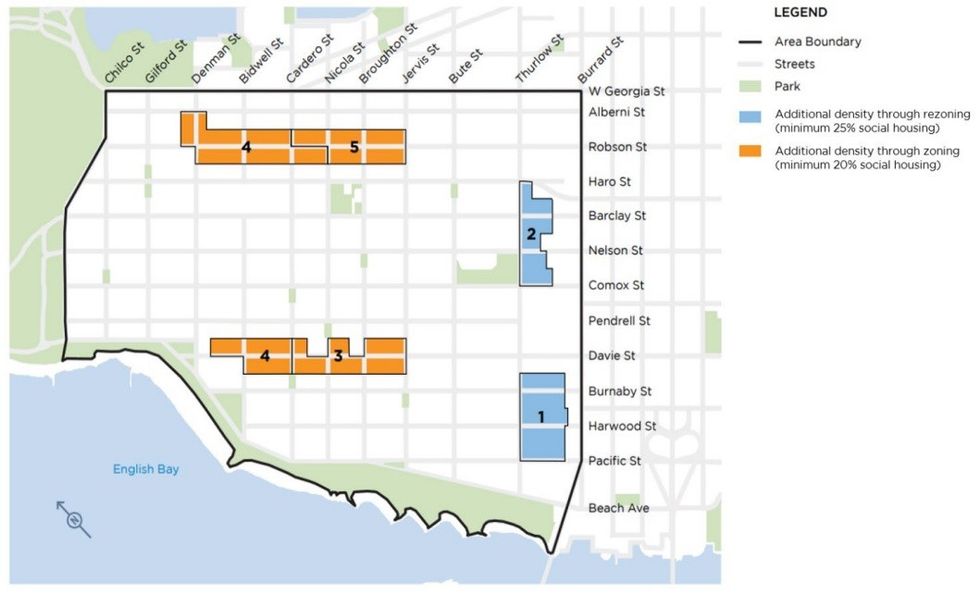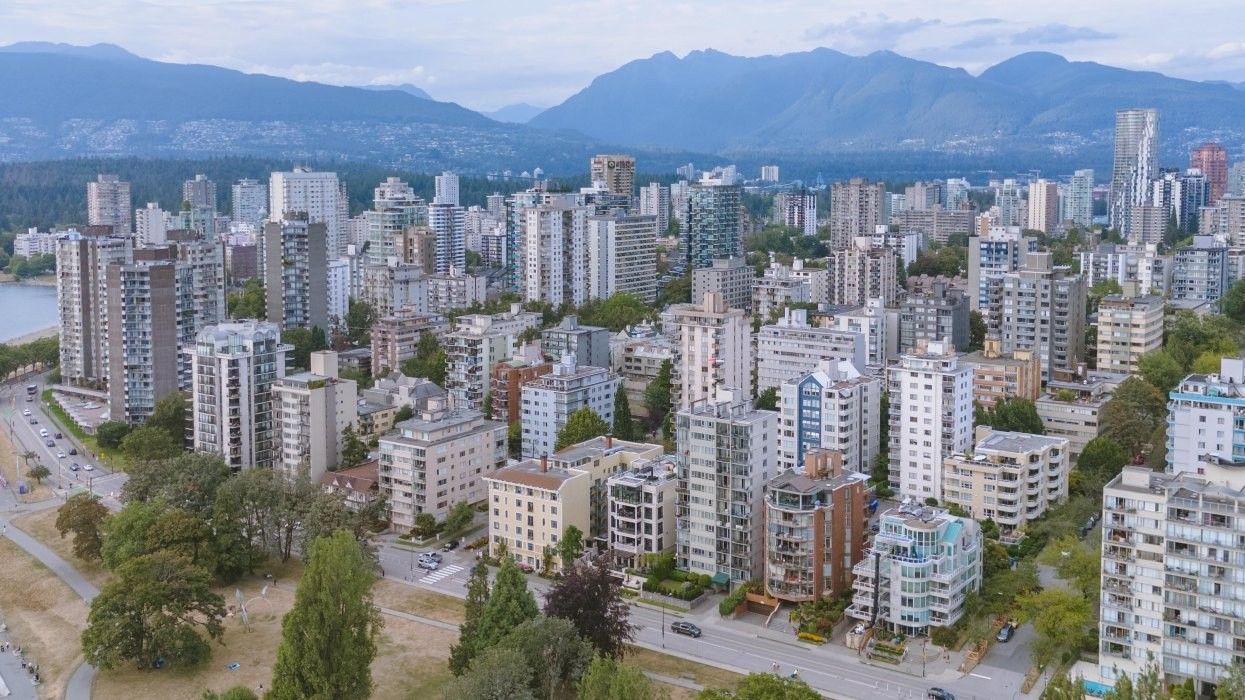[Editor's Note: The amendments to the West End Rezoning Policy discussed in this article were approved by the City of Vancouver on Tuesday, September 24.]
In its first meeting after the August break, which is occurring two weeks after other Metro Vancouver councils returned to action, Vancouver City Council will be revisiting its existing West End Rezoning Policy and considering amendments to the policy.
The West End Community Plan and associated West End Rezoning Policy, both approved on November 20, 2013, were created to support "the delivery of housing, transportation and utility improvements, heritage retention, parks, open space, and other community amenities toward a livable and sustainable community," the City says.
As it relates to housing, in order to prevent the net loss of existing rental housing and to secure affordable replacement options, the West End Rezoning Policy introduced inclusionary housing policies that require developers seeking rezoning to provide a one-for-one replacement of existing market rental housing with social housing or provide a certain percentage of residential floor space as social housing.
Under the West End Community Plan, five sub-areas are subject to the inclusionary requirements, with the inclusionary social housing requirement ranging from 20% to 25%.
In November 2020, Council approved amendments to the West End Rezoning Policy to allow for the option of market rental projects with below-market rental units in Area 1 and Area 2 — sections of what is referred to under the West End Community Plan as the Burrard Corridor — in addition to the option of strata projects with social housing.

Now, the City of Vancouver is considering amending the social housing requirements in those two areas of the Burrard Corridor — referred to as Area E and Area D, respectively, in the West End Rezoning Policy — in order to help stalled projects proceed.
According to a council report, in Areas 3, 4, and 5, four projects have been issued development permits and three of those four have been completed, delivering a total of 178 social housing units.
However, in Areas 1 and 2, where the social housing requirement is 25%, three projects have received rezoning approval, but none have commenced construction. City staff are proposing the social housing requirement in these two areas be reduced from 25% to 20%.
"The applicants are indicating that these projects, which are currently required to deliver a total of approximately 280 social housing units, are not viable in the current financial and construction environment," said City staff. "This proposed change is to address financial viability concerns of current projects in these areas which are not moving ahead due to current economic and market conditions."
City staff say the proposed amendment would apply to the aforementioned three projects that have not been able to commence construction, but that it will require an application by the developer and consideration by Council at a new public hearing. The council report does not identify the projects, but one of those three project appears to by the 32-storey rental tower planned by Wall Financial for 1065 Pacific Street, near Thurlow Street, which was listed for sale in June, as first reported by STOREYS.
Furthermore, staff are also proposing an amendment that would allow developers to pay cash in lieu of delivering social housing on site. The City has yet to outline how the amounts would be determined, but did outline the factors it will consider, adding that the goal is to create a transparent process that minimizes negotiations — a criticism of the traditional community amenity contributions (CACs) process.
"The cash-in-lieu option will reflect the costs for the City to deliver the equivalent amount of social housing offsite, including land and construction," said staff. "Subject to Council approval, staff will develop a methodology to calculate the cash-in-lieu obligation which will be applied through the rezoning process where applicants express an interest to pursue that option. Staff will work towards a standardized approach that is simple and transparent to minimize negotiations and ensure timely processing of rezoning applications."
Of note, however, is that these two proposed changes are being proposed on an interim basis.
"The above-referenced reduction to the inclusionary social housing requirement is recommended as an interim measure for two years until December 31, 2026, or until adoption of a new Inclusionary Zoning By-law that would supersede this rezoning policy, per the new authorities under Bill 16 Housing Statues Amendment Act, 2024," said City staff.
Upon inquiry by STOREYS, Assistant Director of Planning and Head of Housing Policy and Regulation Dan Garrison, who authored the report, said that this applies to the proposed cash-in-lieu option as well, not just the social housing requirement reduction.
"Under the new Provincial legislation introduced through Bill 16, we will be required to develop an inclusionary housing by-law," said Garrison in an email. "At that time, the City will assess whether or not we want to introduce a permanent and City-wide cash-in-lieu option, as well as an option to deliver the inclusionary housing offsite."
The proposed amendments to the West End Rezoning Policy will be considered by Vancouver City Council on Tuesday, September 24.
This article was updated on September 19 to include a statement from the City of Vancouver.
- BC Outlines Local Requirements For New Inclusionary Zoning, Density Bonus Bill ›
- Chard Development Buys Site Of 55-Storey Project Under Receivership In Vancouver ›
- Wall Financial Selling Planned 32-Storey Rental Project In Vancouver West End ›
- Brivia Group To Pay $55M To Cut Social Housing From CURV In Vancouver ›





















